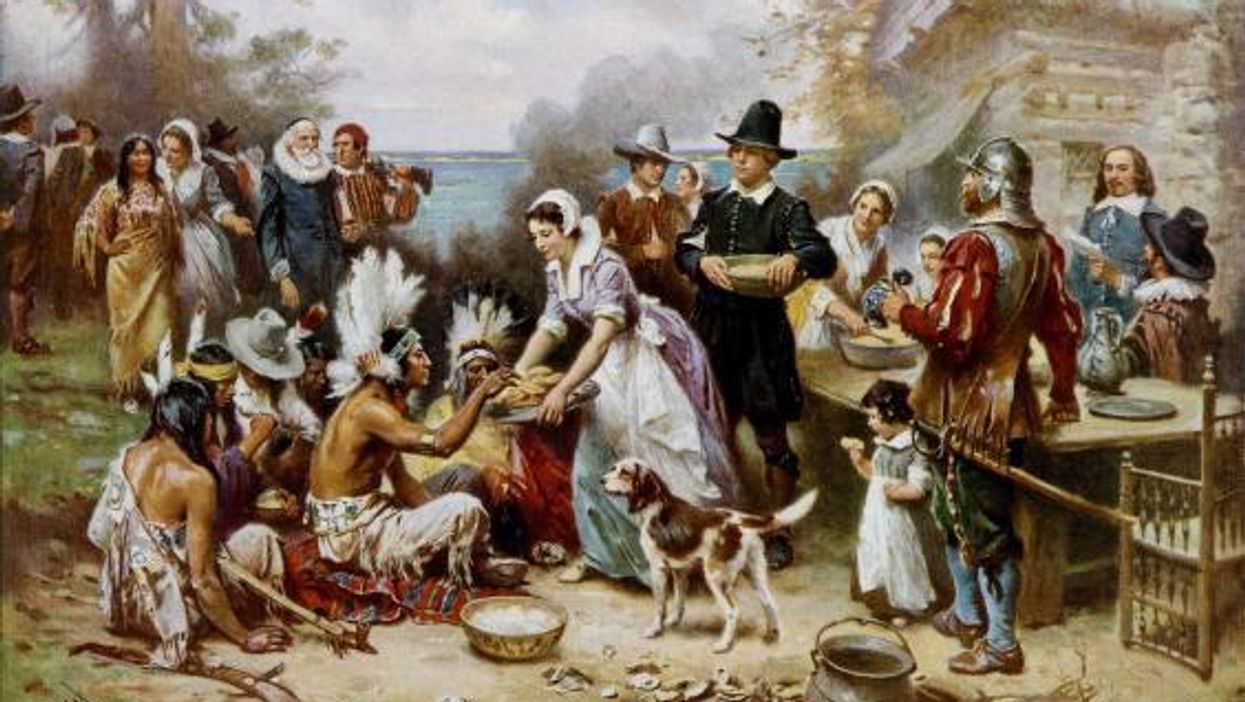News
Indy100 Staff
Nov 26, 2020

A classic US holiday has been thrown into uncharacteristic turmoil this year after millions of Americans have already ignored CDC advice not to travel this Thanksgiving.
Thanksgiving – known for big parades, seeing family and eating Turkey – may seem vastly different as the pandemic continues to rage across the country, whether people follow coronavirus guidelines, or not.
But the question of whether this Thanksgiving will turn into the “next superspreader” event – and it seems like it’s possible – may not be so uncharacteristic of the holiday after all.
Despite the simplifying and whitewashing of the day that ostensibly celebrates a harvest meal shared between pilgrims and Native Americans in the 1600s, the spreading of disease is inextricable from settler history.
As historian Peter . Mancall wrote for CNN: “Modern scholars have argued that indigenous communities were devastated by leptospirosis, a disease caused by Old World bacteria that had likely reached New England through the feces of rats that arrived on European ships.”
While there is an absence of statistics, Mancall estimates that up to 90 per cent of the regional population perished between 1617 to 1619.
“To the English, divine intervention had paved the way,” he continued, “The epidemic benefited the Pilgrims...The best land had fewer residents and there was less competition for local resources.”
The similarity of the 17 century’s epidemic and this year’s pandemic in relation to a celebration of the English settlers was not lost on Victor LaValle, who posted on Twitter earlier this week:
“Americans celebrating Thanksgiving by spreading disease is actually an incredibly accurate way to honor the holiday.”
The post, which currently has almost 100,000 likes, prompted discussion about the origins of the popular holiday.
“I said this to my students. I was removing the myth of Thanksgiving and explaining how those first expeditions not only died miserably but also spread their diseases to the Native Americans. History and how it repeats has a sick sense of humor,” one person commented on the post.
LaValle later clarified that “I never saw this tweet as a joke or punchline. It was meant sincerely,” after he was criticised for making light of the situation.
“Why do Native people have to be the punchline? Our tribal community is really suffering, my grandma died from Covid and three of my mom's siblings have it. It's just unnecessary,” one person commented on the post.
LaValle replied, “I’m sorry to hear about your losses. I really didn’t see this tweet as a joke. I thought it was a statement of horrors past and present. That said, I apologize for any pain I caused. Sincerely.”
The history of Thanksgiving, and what it represents, is difficult to parse as it is associated with family gatherings – which people are particularly craving this year – as well as an exceedingly dark and generally brushed-over history.
One thing is clear, perhaps the positive thing that could come out of this unusual Thanksgiving is an opportunity to reevaluate how we perceive this holiday.
“Many of my indigenous brothers and sisters refuse to celebrate Thanksgiving, protesting the whitewashing of the horrors our ancestors went through, and I don’t blame them,” Sean Sherman, a prominent chef who promotes indigenous cuisine, wrote in Time Magazine.
“The thing is, we do not need the poisonous ‘pilgrims and Indians’ narrative. We do not need that illusion of past unity to actually unite people today. Instead, we can focus simply on values that apply to everybody: togetherness, generosity and gratitude.”
MORE: Christopher Columbus was a fraud. Can we stop celebrating his legacy now?
Top 100
The Conversation (0)













